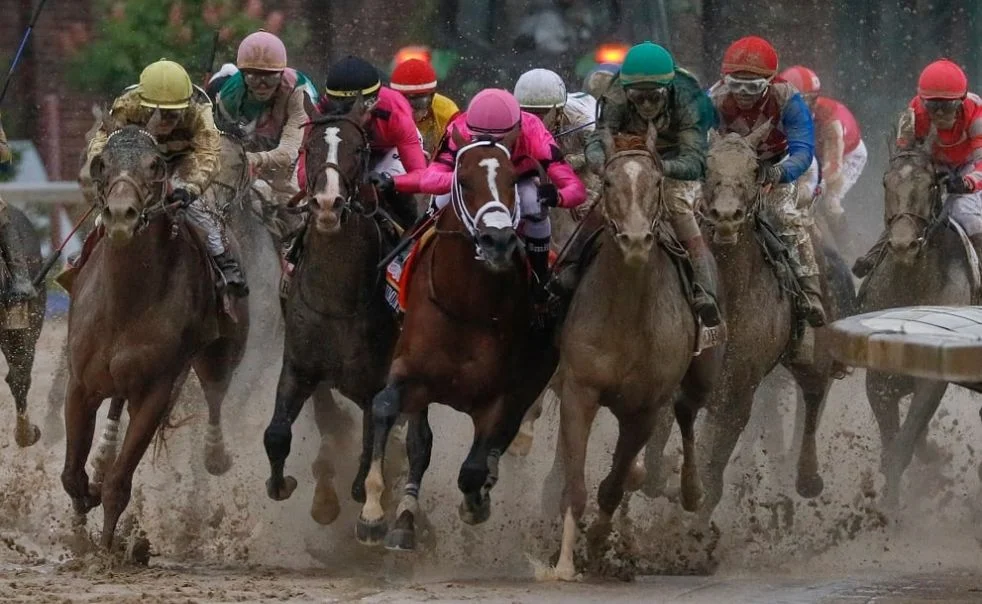Sixth Circuit Court of Appeals Reexamines Racing Dispute

Elle
Nov 14th 2025
Likes
Share:
The U.S. Sixth Circuit Court of Appeals revisited a long-standing challenge to the Horseracing Integrity and Racing Authority (HISA) on Wednesday, following a directive from the U.S. Supreme Court. The case centers on whether Congress improperly allowed a private body to wield federal regulatory power over the horse racing industry.
Three states, Oklahoma, Louisiana, and West Virginia, along with their horse racing commissions, argue that the HISA-Federal Trade Commission (FTC) relationship breaches the private nondelegation doctrine. They claim the FTC effectively surrendered its regulatory authority to a private entity that operates with limited federal oversight.
The lawsuit, first filed in 2021, contests the structure established by the Horseracing Integrity and Safety Act of 2020. That law created HISA and tasked it with drafting and enforcing rules concerning racetrack safety standards and anti-doping standards. While the FTC retains the ability to review and approve HISA’s rules, the plaintiffs say the Racing Authority operates too independently and can enforce its own rules in court without sufficient FTC control.
When the Sixth Circuit Court of Appeals first reviewed the case in 2022, the panel dismissed the states’ claims. However, the U.S. Supreme Court later instructed the appellate court to reconsider the issue in light of FCC v. Consumers Research, a ruling that clarified how to determine whether a private entity acts “subordinately” to a federal agency under constitutional racetrack safety standards.
During Wednesday’s hearing, Chief U.S. Sixth Circuit Court of Appeals Judge Jeffrey Sutton, a George W. Bush appointee, led a pointed round of questioning aimed at both sides in Sixth Circuit Court of Appeals. Sutton appeared skeptical of the states’ objections, asking why the delegation of Racing Authority to HISA presented a constitutional issue.
“It happens all the time that governments rely on private entities,” Sutton said. “So I’m trying to understand what is so bad about this when there’s a clear process for appointing the board. Presumably, these people have obligations to the government and not their private interests.”
Representing the states, attorney Lochlan Shelfer argued that the Supreme Court’s Consumers Research decision changed the legal landscape. He said the ruling set a stricter standard requiring that the government hold all decision-making power, with any private involvement limited to carrying out policy decisions already made by federal officials.
“At a minimum, the private party may not make policy,” Shelfer said. “The government alone must have sole decision-making authority, and the private party’s actions can have only the legal effect that the government decides they should.”
Shelfer contended that under this framework, HISA’s powers over investigations, adjudications, and civil enforcement exceed constitutional boundaries. He asked the court to examine the total balance of authority between HISA and the FTC, arguing that the current setup allows too much independence for a private entity enforcing federal law.
In contrast, attorney Pratik Shah, representing HISA, said recent congressional amendments addressed many of the concerns. Those changes grant the FTC explicit authority to overrule HISA’s rules directly. Another point made by Shah was that the new FTC regulation 9 in Sixth Circuit Court of Appeals, which limits the authority of HISA, will require the HISA to get a formal approval from the FTC for each new rule it will propose. The process, which is delayed due to the federal government shutdown, is anticipated to be finished within 40 days after the resumption of normal activities.
Shelfer, however, dismissed that development as inadequate. “If all that an agency had to do is regain some of its authority through rulemaking then the nondelegation doctrine would be simply a dead letter,” he stated, pointing out that the Federal Trade Commission’s (FTC) power to intervene after the fact does not solve the issue of the constitutionality,” the speaker argued.
Courtney Dixon, attorney for the FTC, informed the panel that they had rejected all the states’ arguments the last time and that HISA had not yet filed any enforcement actions in Sixth Circuit Court of Appeals. However, Sutton did not seem to accept this and kept questioning if the FTC really has control over the decisions regarding enforcement.
The hearing took up the better part of an hour and Judges Richard Griffin and Guy Cole Jr. were the ones who along with Sutton were on the bench. Even though both judges were quiet most of the time, Sutton’s repeated interrogations seemed to indicate that it was very hard to interpret the recent directions from the Supreme Court in the case of a complicated administrative hierarchy.
The Sixth Circuit Court of Appeals’ reconsideration comes amid conflicting decisions from other circuits. Both the Fifth and Eighth Circuits sided with similar challenges, ruling that HISA’s enforcement powers improperly transfer governmental authority to a private entity. Those decisions escalated the disagreement between the different federal courts, and as a result, the Supreme Court ordered a standardized review of the matter.
The decision by the Sixth Circuit Court of Appeals on the matter could essentially shape the level of federal regulation that would apply to horse racing in the future. If the court upholds the states’ claims, Congress may face pressure to revisit how HISA and the FTC share regulatory power. A ruling in favor of HISA, on the other hand, would reinforce the current structure and potentially limit future challenges to public-private regulatory partnerships.
For now, the racing industry and state regulators await the Sixth Circuit Court of Appeals decision, which could either reaffirm or reshape the balance between federal authority and private governance in one of the country’s oldest sporting traditions.
